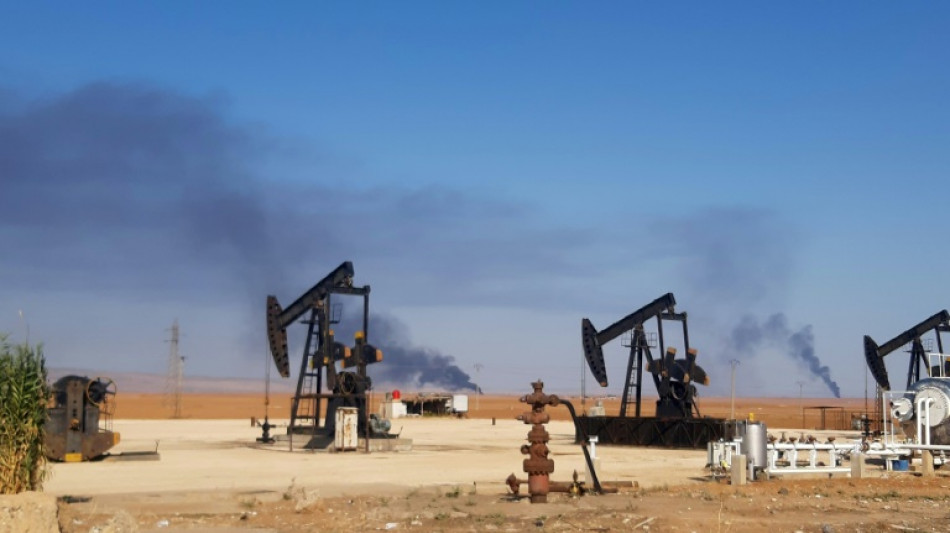

Oil and gas majors stick to their guns on climate advertising
Oil and gas companies have increasingly come under legal attack over their role in contributing to global warming, yet unlike other industries that face tougher regulations they have not abandoned their climate marketing claims.
It's a strategy rolled out since the early 2000s in the wake of the Kyoto Protocol on cutting greenhouse gas emissions, when firms largely dropped their denial of climate change and promoted themselves as essential players for an energy transition.
More recently they have extolled investments in carbon capture, biofuels, solar energy and hydrogen power.
But for critics, the claims obscure the reality that drilling for oil and gas continues unabated.
"They're giving false reassurance, like: Don't worry, we don't need to change anything," said Benjamin Franta, a professor of climate litigation at Oxford University.
"Greenwashing is just as important as climate denial, and in some ways it's even more important because it's the more dominant form of false reassurance," he told AFP.
Using data from Mediaradar, Franta and his colleagues have created a database that allowed AFP to analyse over 2,000 advertisements in the United States from five oil majors since 2006.
It reveals a near-total disappearance in the 2020s of messages focused on fossil fuels in favour of claims presenting them as leaders in low-carbon technologies.
For example, BP urges people to "Join us on the journey to a lower carbon future", while ExxonMobil says "This technology is one of the ways ExxonMobil is advancing climate solutions."
Oil majors have recently prioritised those messages over language on carbon neutrality goals, which were more prominent in the early 2020s, at the height of public and political mobilisation on climate challenges.
- Increased pressure for damages -
French major TotalEnergies, which bills itself an "integrated multi-energy company", will learn Thursday if a French court finds it misled consumers with climate pledges it began touting in 2021.
Whether for or against Total, the ruling could have far-reaching impacts given the limited legal precedents so far with regards to greenwashing claims by fossil fuel giants.
In Spain, Repsol won a case this year against Iberdrola, which had accused its rival of misleading advertising with slogans such as "an energy company committed to a sustainable world".
A greenwashing claim against oil companies was also recently rejected by a New York court, while in Australia, energy group Santos awaits a verdict in a case brought by shareholders who say they were duped by its claim of achieving carbon neutrality by 2040.
The law has become much clearer in sectors such as aviation, food or clothing, particularly in Europe, with anti-greenwashing crackdowns forcing brands to rein in their environmental claims.
Fewer bottled waters or coffees now offer "carbon neutral" guarantees ahead of an EU directive outlawing them from 2026.
H&M and online clothing retailer Zalando meanwhile had to drop vague sustainability labels under pressure from regulators, while the airline KLM saw its climate advertising deemed misleading in the Netherlands.
"What we are seeing as Europeans really changed," said Sybrig Smit of the Berlin-based NewClimate Institute.
"There are definitely companies that completely threw their climate policy out the window," she said. "There are also definitely companies that are making fewer of these very bold claims, but actually their ambition is more realistic."
But fossil fuel producers remain a priority target, accused of being the primary source of global warming while spreading disinformation on their climate impacts for decades.
That has put them in legal crosshairs with dozens of cases lodged in Europe and the United States, with California seeking to make them pay huge sums to help pay the costs of climate change -- much as tobacco companies were eventually forced to pay up after years of downplaying the health impacts of smoking.
T.Zangari--IM



